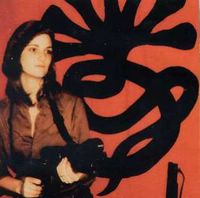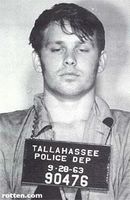Reel Short Reviews, Take 7
Brief thoughts on some flicks, er motion pictures, I've seen or re-seen as of late. For the rating impaired, the maximum rating would be four stars ...
All the Real Girls (2003)
Director-screenwriter David Gordon Green is a major talent, but his ambitions are not always successful. When his distinctive stylistics don't work, his pictures (i.e. in 2000's George Washington) threaten to lull the audience into a coma. All the Read Girls is, more often than not, on-target. Its deliberative pacing, episodic structure and lyricism prove effective in this story of Paul (Paul Schneider), a small-town womanizer who falls hard for Noel (Zooey Deschanel), the virginal sister of his best friend. Schneider and Deschanel are top notch, but the film's allure (and occasional stumble) is its relentlessly dull-eyed romanticism, Green's determination -- like William Faulkner and Flannery O'Connor and a slew of southern artists of yesteryear -- to wring poetry from Southern-fried opacity.
***
Blind Spot: Hitler's Secretary (2002)
This documentary is essentially a remarkable series of interviews with Traudl Junge, who was Hitler's secretary throughout most of World War II until his final days in an underground bunker below Berlin. A 20-year-old woman from Bavaria when she was plucked from a typing pool to serve as one of the Fuhrer's personal secretaries, Junge wrestles about how much she could have, and should have, known of the atrocities that were occurring during her service. Her stories are fascinating and macabre. She obviously liked Hitler well enough as a boss; he was undemanding and paternal toward her, but Junge also provides interesting anecdotes about his delusions manifesting themselves in the most innocuous ways. But Blind Spot, despite its captivating subject, is almost defiantly anti-cinematic. The filmmakers' refusal to use any archival footage or photographs, not even a single photograph from that time period, is curious. Junge died the day the film premiered at the Berlin Film Festival.
***
De-Lovely (2004)
It's de-listless, it's de-lifeless, it's disastrous. Cole Porter deserved better than this half-congealed, awkward, pretentious -- and just plain crappy -- biopic.
*
In the Realms of the Unreal (2004)
What a strange subject for such a strange, and fascinating, documentary. Filmmaker Jessica Yu examines the fantasy world of the late Henry Darger, a Chicago janitor who died in 1973. Although no one knew it until Darger was nearing death, he had devoted most of his reclusive life to writing a 15,ooo-page novel about fictitious little girls who fight a tyranny that enslaves children. Along with the writings were paintings and collages, lots of 'em, some as big as 10 feet wide. Yu makes some interesting choices in telling Darger's story, such as animated flights spinning off from his artwork and haunting voice-overs from Larry Pine (as Darger reading his autobiography) and Dakota Fanning (as narrator). Still, I think the documentary errs in not further exploring Darger's obvious mental illness. Watching In the Realms of the Unreal, I couldn't shake the suspicion that Darger might have been so damaged a human -- he definitely endured a horrific childhood -- that he had been turned into a pedophile.
***
Kingdom of Heaven (2005)
Ridley Scott sure knows how to stage battles scenes: big, flesh-searing sequences featuring clanging swords, over-the-top sound effects and lots of dirt and blood filling the air. As for the rest of this wannabe epic about the Crusades -- well, it's hero is Orlando Bloom, if that gives you any indication, looking here like a boy-band member finally able to grow a beard. A well-crafted movie, it's hobbled by a curiously detached feel, with Bloom portraying a weirdly passive protagonist.
**1/2
Meet the Fockers (2004)
Ahh, the welcome results of low expectations. After hearing from so many folks who felt this sequel to 2000's Meet the Parents was about as funny as a tarry stool -- which is to say, not very funny -- I didn't count on much. But I was pleasantly surprised. While the hijinks this time around lack the clever punch of the earlier flick, Meet the Fockers is well-intentioned enough, a knuckleheaded but gentle culture clash pitting the Jewish, expressive and offbeat Fockers (Dustin Hoffman and Barbra Streisand) against the rigid, competitive and decidedly Calvinistic Byrnes (Robert De Niro and Blythe Danner). Poor Ben Stiller takes a back seat while De Niro, Hoffman and Streisand have fun tweaking their personas; ultimately, the picture is about them.
**1/2
Northwest Passage (1940)
Good, old-fashioned, undeniably watchable, quasi-racist adventure yarn with Spencer Tracy as a looney Indian fighter leading a band of merry scallawags -- or some such group.
***
Owning Mahoney (2003)
Philip Seymour Hoffman is an amazing actor when it comes to conveying desperation, and so it is almost painful -- no, scratch that, it is painful -- to watch his portrayal of a real-life Toronto banker whose gambling addiction escalated to embezzlement. There are some excellent supporting performances from the always reliable John Hurt and Minnie Driver, but this is truly Hoffman's movie. Director Richard Kwietniowski's dispassionate gaze gives the performers room to shine.
***
Primer (2004)
A promising and intermittently ingenious story of four tech-heads who accidentally build a time machine in the garage. This indie feature by Shane Caruth never quite shakes off its collegiate pretentiousness.
**1/2
Tadpole (2002)
A modest indie romantic comedy from director Gary Winick and screenwriters Heather McGowan and Niels Mueller is a little bit of The Catcher in the Rye, Summer of '42, Spanking the Monkey and a lot of French farce. Chronicling Oscar (Aaron Stanford), a preppy 15 year old who yearns for his worldly stepmother (played by -- who can blame him? -- Sigourney Weaver), Tadpole has a lot to recommend it, particularly Bebe Neuwirth as Weaver's best friend (who the kid does bed) and John Ritter as the hapless and befuddled father (between Sling Blade, Bad Santa and this picture, Ritter truly was in the midst of an indie-film renaissance at the time of his untimely death). But the movie's contrivances, that a 15-year-old boy could boink his stepmom's 40ish friend and no one really seems to raise much of an eyebrow over it, is treated so cavalierly as to be just dumb.
**1/2























0 Comments:
Post a Comment
<< Home